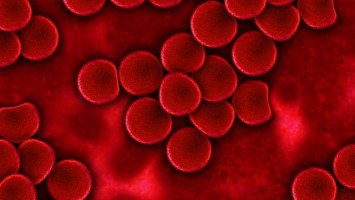
A Phase I/II study, led by investigators at The University of Texas MD Anderson Cancer Centre, reports an investigational drug called tagraxofusp has demonstrated high response rates in patients with blastic plasmacytoid dendritic cell neoplasm (BPDCN), a rare but highly aggressive - and often fatal bone marrow and blood disorder - for which there are no existing approved therapies.
Findings from the study are being presented at the 60th American Society of Haematology (ASH) Annual Meeting & Exposition in San Diego by Naveen Pemmaraju, M.D., associate professor of Leukaemia.
"This was the largest prospectively designed multi-centre, multi-cycle clinical trial specifically dedicated to patients with BPDCN," said Pemmaraju. "We observed high response rates including an overall response rate of 90 percent among frontline-treated patients. These findings give us hope for patients who have had no treatments specific to this disorder."
BPDCN patients historically have experienced poor outcomes and low response rates with a variety of cytotoxic chemotherapy approaches following diagnosis.
While there are no approved therapies or standard of care, patients quite often receive chemotherapy approved for other blood cancers, and/or stem cell transplants.
However the majority of patients are older or do not qualify for standard chemotherapy approaches.
Forty-five patients with a median age of 70 years were enrolled in the seven-site study which provided tagraxofusp as a first-line or relapsed/refractory treatment.
Median follow up for the study was 13.8 months.
Patients are continuing to be enrolled for the next stage of the clinical trial which will ensure ongoing access to the drug.
Tagraxofusp is a novel targeted therapy that targets CD-123, a cell surface receptor, expressed in BPDCN and other haematologic malignancies.
The drug is also being investigated in other clinical trials, including for patients with chronic myelomonocytic leukaemia (CMML) and myelofibrosis.
Tagraxofusp received a Breakthrough U.S. Food and Drug Administration therapy designation with a rolling biological license application submitted to the FDA.
The World Cancer Declaration recognises that to make major reductions in premature deaths, innovative education and training opportunities for healthcare workers in all disciplines of cancer control need to improve significantly.
ecancer plays a critical part in improving access to education for medical professionals.
Every day we help doctors, nurses, patients and their advocates to further their knowledge and improve the quality of care. Please make a donation to support our ongoing work.
Thank you for your support.